7:00AM to 5:00PM
Who hasn’t spent countless hours removing stubborn stains from their bathroom tub or sink?
But in many cases, such stains don’t go away, no matter how hard you try. The surface of the tub or sink may get damaged, further complicating the problem. Consequently, many people are at a loss as to what to do, and calling a plumber may not be the best solution.
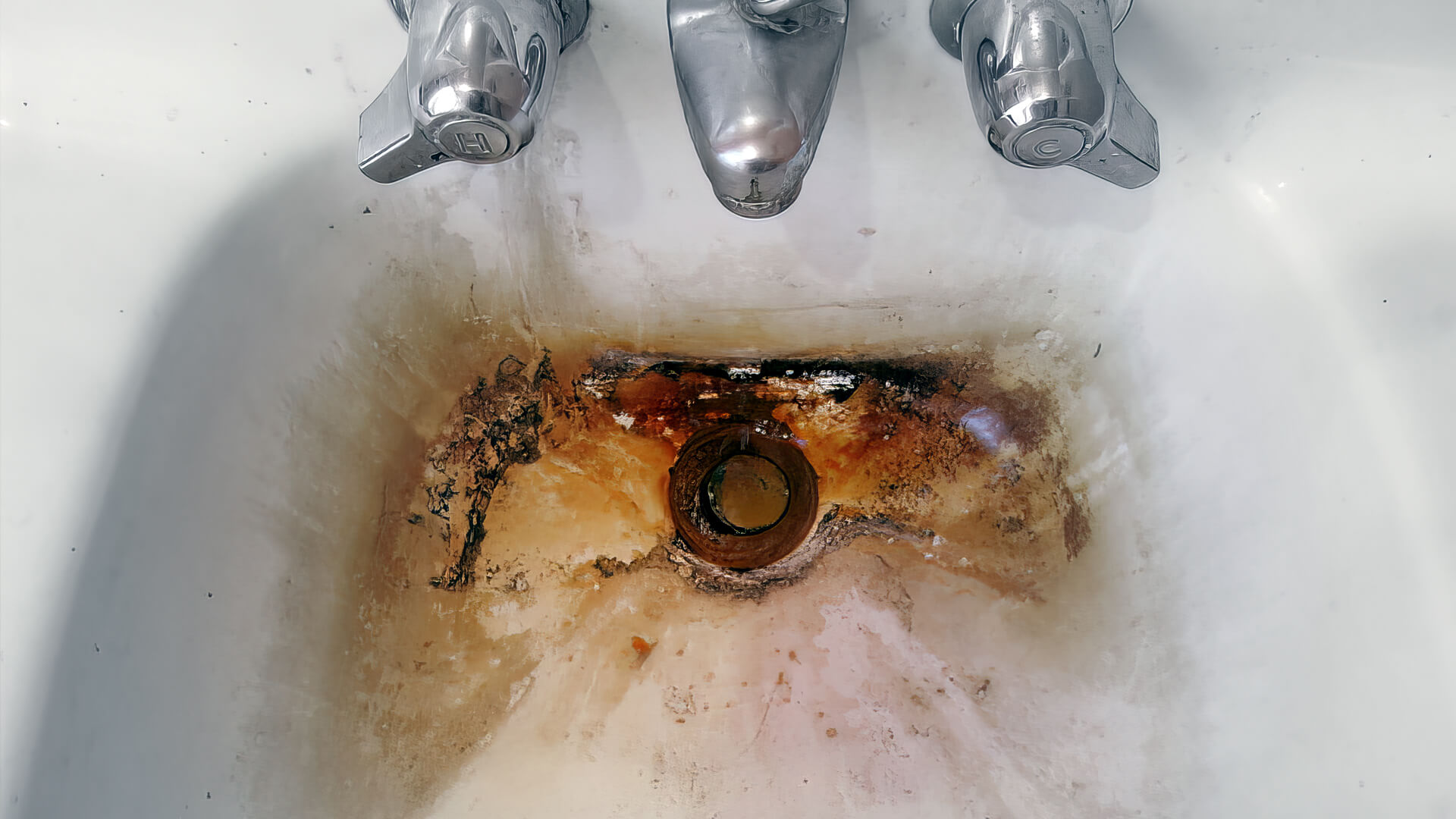
Rust stains can affect the bathroom’s overall appearance, and you may find yourself in an embarrassing situation if guests arrive. Nobody wants their bathroom to appear as a public restroom that hasn’t been cleaned for weeks. Apart from that, rust can actually cause more serious issues, such as blockages or burst pipes.
Thankfully, there are some ways by which you can get rid of rust stains effectively without needing to rely on professionals. And in this brief guide, we’ll share those very methods with you.
So, let’s get started!
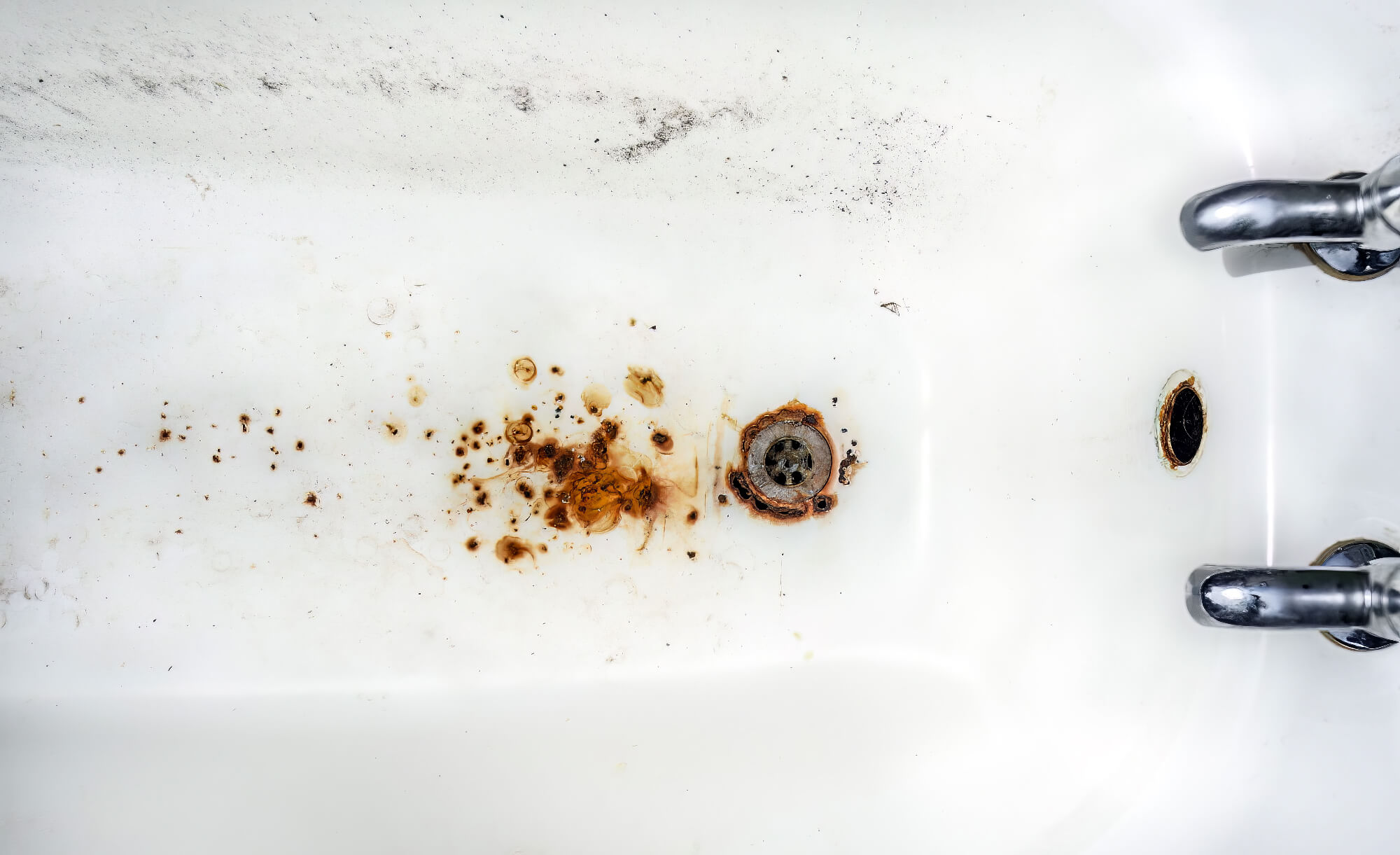
Rust stains on bathroom sinks and tubs are caused by water containing very high iron levels. This iron may come from bacteria dissolved in the water, particulates, and other metal components. Frequent iron deposition on the sink’s surface leads to stains, causing reddish marks on the tub or sink.
Here are some methods that can help you get rid of unsightly rust stains from your sink or tub effectively:
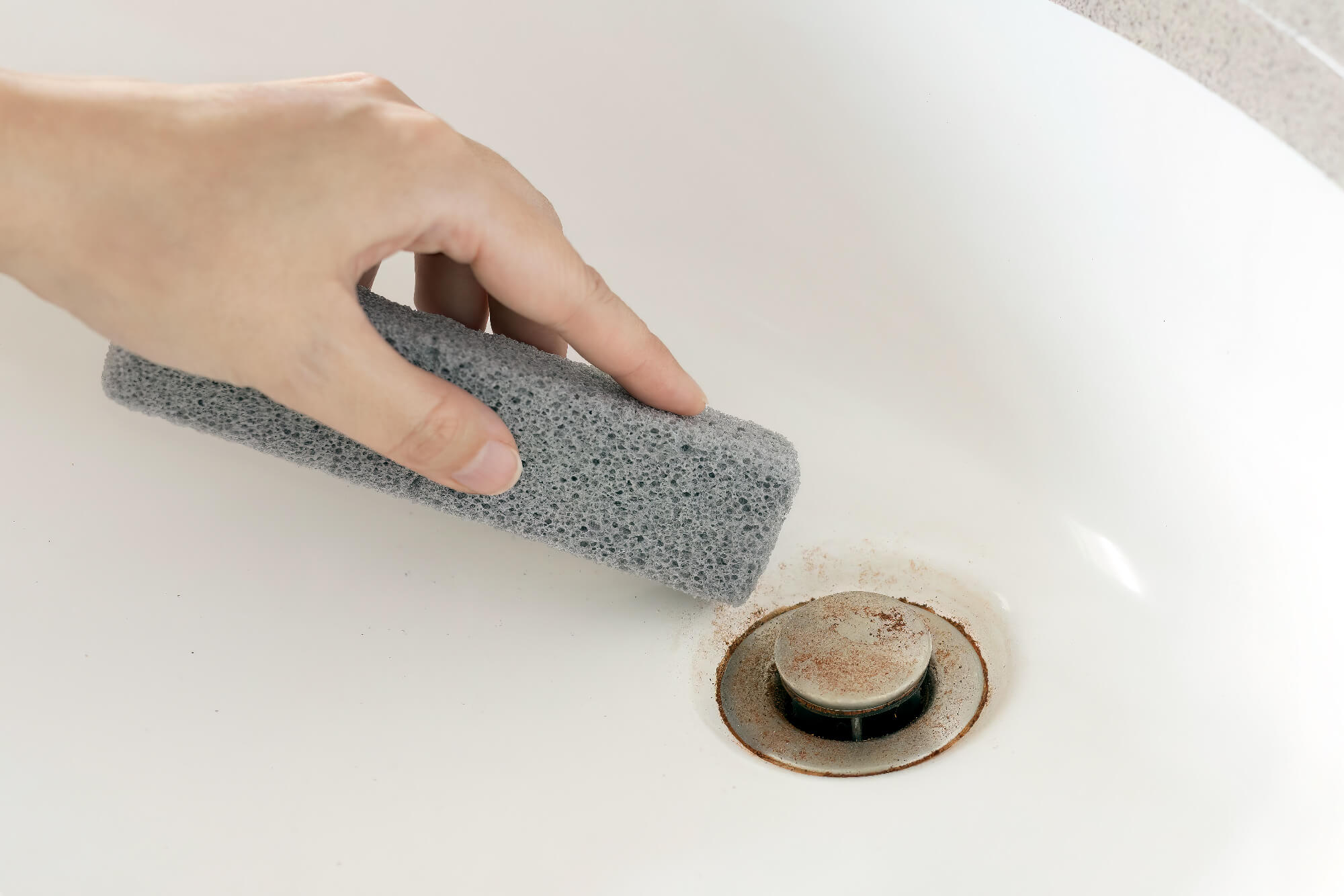
Mix lemon juice and salt to form a paste and apply it to the surface of the rust stains. Leave the paste overnight or at least a few hours to set, then scrub the area using a toothbrush. Once done, rinse the area with clean water.
This excellent method is easy to use and will not damage your porcelain sink. However, this technique is unsuitable for sinks and tubs made from fibreglass since they can get scratched easily. In this method, you must wet the surface containing the rust stains and the pumice stone before scrubbing the area.
It may be possible to remove lighter stains just by using a scouring pad, though you should avoid using abrasive materials on fibreglass surfaces, as mentioned before.
Several chemical cleaners or commercial rust removers can remove rust stains from a toilet bowl, bathtubs, and sinks. Such cleaners work by oxidising the rust, allowing the stains to be easily wiped away. However, some cleaners have strong chemicals that give off potent fumes, so you must be careful when using them.
Bathroom fixtures like showerheads and faucets can quickly gather rust stains, even though they are designed to be in contact with water. Fortunately, mineral build-up and rust stains can be easily cleaned up using proper maintenance techniques.
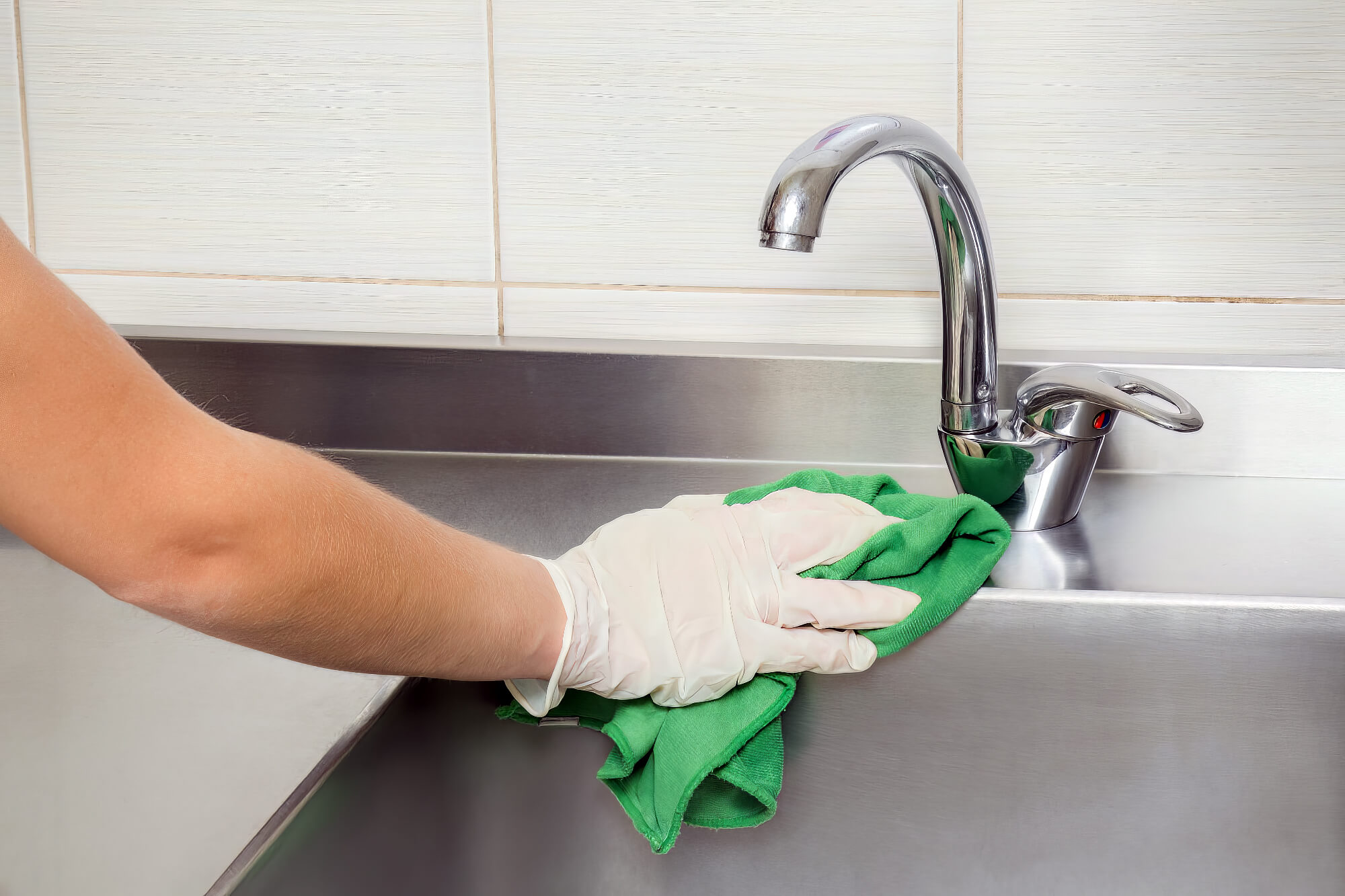
Vinegar is frequently used as a household cleaner and can effectively keep faucets and showerheads clean. Mix three parts white vinegar with one part water and pour this mixture into a spray bottle. Then, spray the solution onto the rust stain before letting it soak, allowing the vinegar to break down the mineral deposits and rust stains.
After the mixture has been left for a few hours, use a scouring pad to clean the stains. In this case, you can use a lightly abrasive pad since fixtures like faucets and taps are not easily damaged by scrubbing. Showerheads can even be removed and soaked in vinegar before the scrubbing process.
Mix baking soda and vinegar with water until it forms a paste before applying it to the stains. After application, leave the paste for about half an hour and then scrub the area with a slightly abrasive scouring pad to remove the stains.
The bathroom is the most common area where rust stains develop, but some techniques can help prevent that. These include:
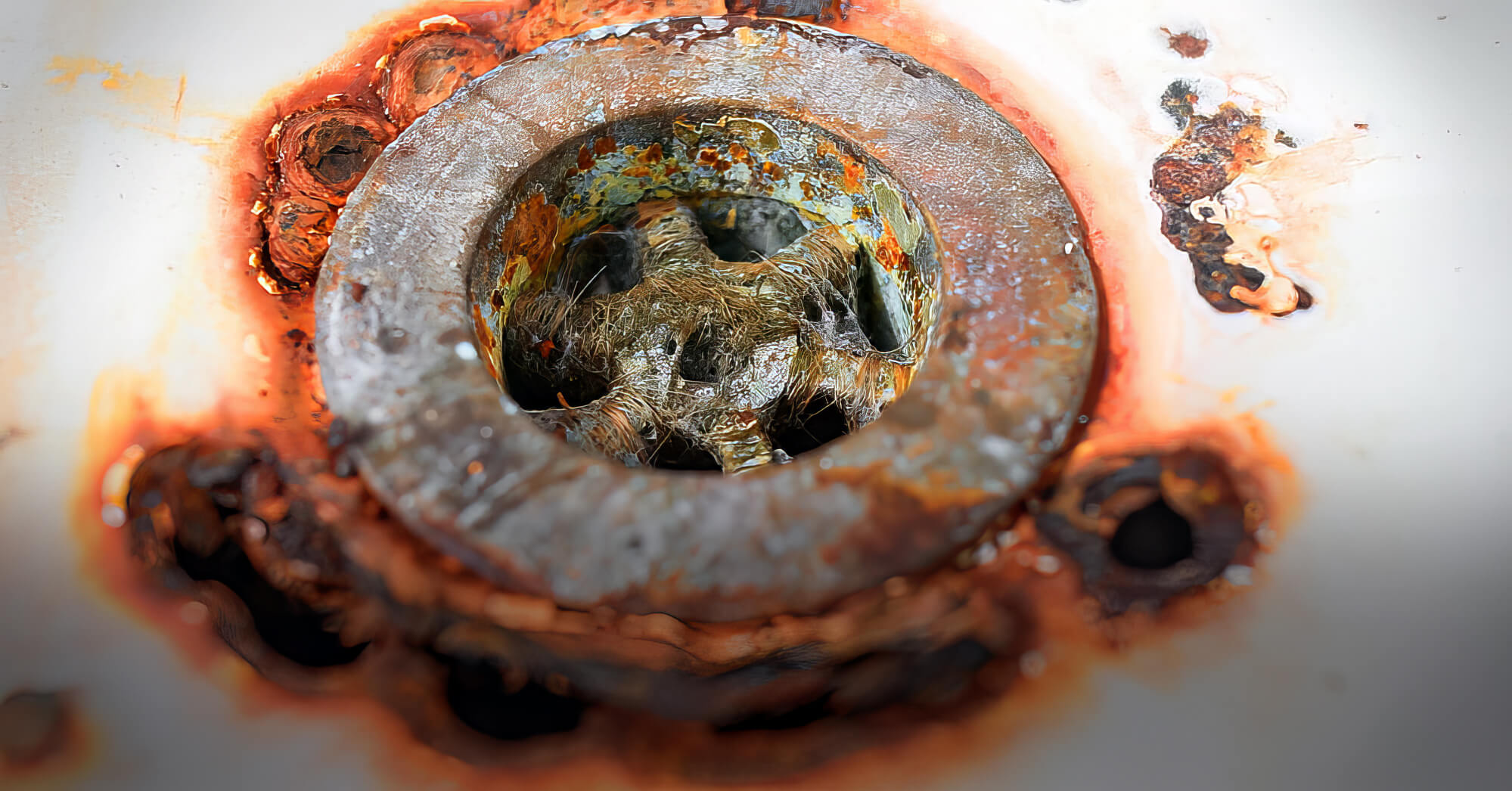
Using the above methods to clean the various bathroom fixtures is the best way of preventing rust stains from developing. Also, after cleaning, use a squeegee on the shower walls and towel dry the tub, preventing stains from hard water.
Similarly, it would help if you cleaned sinks and toilets weekly, and it is recommended that metallic objects like razors, shaving cream cans, etc., be removed. This will reduce the chances of oxidation, which can lead to rust.
A water filtration system or a water softener can help reduce the number of minerals in the water, which offers several benefits. Plumbing systems that do not have to deal with water containing lots of minerals tend to last longer, and the chances of rust are highly reduced. Also, a water softener can help improve the smell and taste of the water.
Getting a water softener can also help save a lot of time and effort on scrubbing and cleaning the various bathroom fixtures weekly.
The above methods are the most effective and can help remove rust stains from your bathroom sinks and bathtubs. Most of these techniques require readily available household items or can be bought from nearby home supply stores.
Remember not to use cleaners containing harsh chemicals if you have pets or children, as these can be dangerous. Also, they may not be suitable for all types of bathtubs and sinks, such as fibreglass ones.
Finally, if all else fails, contact your nearest plumber. They can effectively eliminate any rust stains. If you are on the Gold Coast, look no further than our expert team at Gold Coast Plumbing Company!
Until next time!